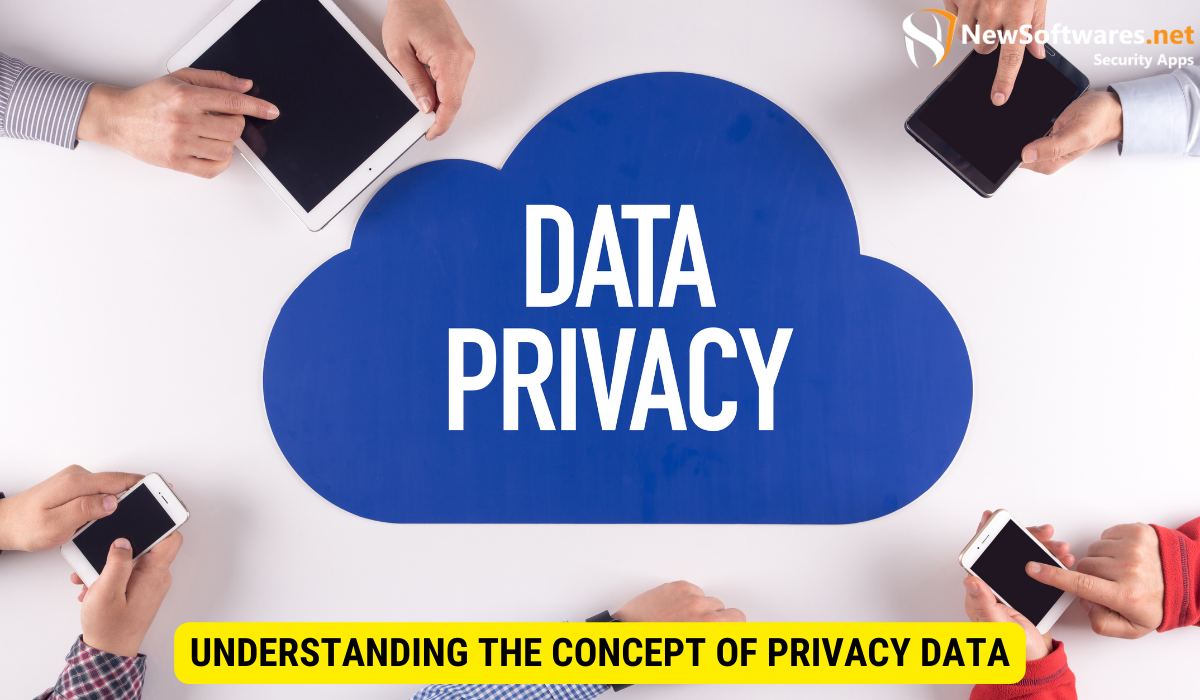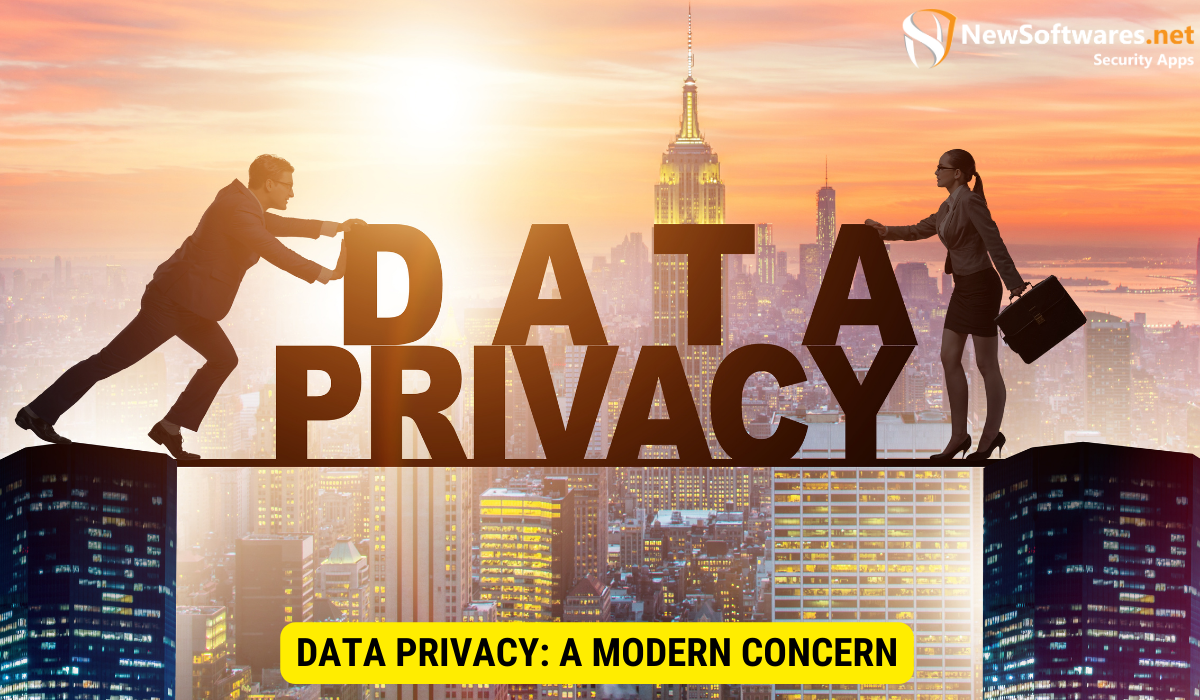The focus of privacy primarily centers on the individual, encompassing their right to maintain confidentiality, control over personal data, the desire to remain undetected, and the autonomy to make private decisions. It is a multifaceted concept that goes beyond mere data protection, integrating aspects of personal dignity and freedom.
Privacy is a fundamental concept that encompasses various aspects in order to protect individuals and their personal information. It involves the right to maintain confidentiality, the preservation of individual autonomy, the desire to remain undetected, and the safeguarding of data in today’s digital age.
Understanding the Concept of Privacy

Privacy has evolved over time and has become a complex issue in the modern world. It is not limited to just keeping information secret, but also involves respecting an individual’s personal dignity and autonomy. The concept of privacy has expanded to include various dimensions that need to be explored and understood.
When discussing privacy, it is important to recognize that it is not a static concept. It has evolved alongside technological advances and societal changes. In earlier times, privacy primarily revolved around protecting physical spaces and personal possessions. People would secure their homes with locks and safes to ensure their privacy. However, in the digital age, privacy has taken on a whole new meaning.
The Evolution of Privacy
In the digital age, privacy has expanded to cover a broader range of areas, including the protection of personal data online and the right to be forgotten. With the advent of the internet and social media, individuals are now faced with the challenge of protecting their personal information from being accessed and misused by others.
Moreover, the rise of surveillance technologies has further complicated the concept of privacy. From closed-circuit television (CCTV) cameras to facial recognition systems, individuals are constantly being monitored in public spaces. This has raised concerns about the erosion of privacy and the potential abuse of surveillance technologies.
The Different Dimensions of Privacy
Privacy can be viewed from multiple dimensions, each with its own unique considerations. One such dimension is informational privacy, which focuses on controlling the collection, use, and dissemination of personal information. In an era where data is constantly being collected and analyzed, individuals are increasingly concerned about who has access to their personal information and how it is being used.
Another dimension of privacy is spatial privacy, which relates to the protection of physical spaces. This includes not only our homes but also public spaces where we expect a certain level of privacy. With the proliferation of surveillance cameras and the growing presence of technology in our everyday lives, maintaining spatial privacy has become a challenge.
Furthermore, decisional privacy is another important dimension to consider. It involves maintaining control over personal choices and autonomy. In a world where our decisions are increasingly influenced by algorithms and targeted advertisements, preserving decisional privacy has become crucial. Individuals should have the right to make choices without undue influence or manipulation.
In conclusion, privacy is a multifaceted concept that has evolved alongside technological advancements and societal changes. It encompasses not only the protection of personal information but also the preservation of personal dignity and autonomy. Understanding the different dimensions of privacy is essential in navigating the complexities of the modern world.
The Role of Confidentiality in Privacy
Confidentiality plays a crucial role in privacy as it relates to the protection of sensitive information. It involves keeping information secure and preventing unauthorized access. Confidentiality is essential in various contexts, from personal discussions between individuals to professional settings where data privacy is critical.
The Importance of Confidentiality
Confidentiality is vital in maintaining trust and fostering open communication. When individuals feel that their information will be kept confidential, they are more likely to share openly and seek help when needed. Confidentiality enables people to have honest discussions and seek advice without fear of judgment or negative consequences.
Consider a scenario where a person is struggling with mental health issues. They may hesitate to seek professional help if they are not assured of confidentiality. However, if they know that their conversations with a therapist or counselor will remain confidential, they are more likely to open up about their struggles, allowing the professional to provide appropriate guidance and support.
Confidentiality also plays a significant role in personal relationships. In a friendship or romantic partnership, trust is built on the understanding that personal information shared in confidence will not be divulged to others. This trust allows individuals to confide in one another, strengthening their bond and fostering a sense of emotional security.
Confidentiality in Different Contexts
Confidentiality is necessary in fields such as healthcare, law, and counseling, where sensitive information is shared. In healthcare settings, confidentiality ensures that patient information is protected, promoting trust between patients and healthcare providers. Patients need to feel comfortable sharing their medical history, symptoms, and concerns, knowing that their personal information will not be disclosed without their consent.
Similarly, in legal matters, maintaining confidentiality allows individuals to share sensitive details without compromising their case. Lawyers and their clients rely on the assurance that their conversations will remain confidential, enabling them to build a strong defense or present a compelling argument without fear of their adversaries gaining access to privileged information.
Confidentiality is also crucial in counseling and therapy sessions. Clients must feel safe and confident that their personal struggles, traumas, and emotions will be kept confidential. This assurance allows them to explore their thoughts and feelings openly, facilitating the therapeutic process and helping them work towards personal growth and healing.
Moreover, confidentiality extends beyond professional settings. In everyday life, individuals often engage in private conversations with friends, family members, or colleagues. These discussions may involve personal experiences, opinions, or sensitive topics. Maintaining confidentiality in such interactions fosters trust and encourages open dialogue, strengthening relationships and promoting a sense of psychological safety.
In conclusion, confidentiality is a fundamental aspect of privacy. It plays a vital role in maintaining trust, fostering open communication, and protecting sensitive information. Whether in professional settings or personal relationships, confidentiality enables individuals to share openly, seek help when needed, and build strong connections based on trust and respect.
The Individual’s Perspective on Privacy
From a human rights perspective, privacy is considered a fundamental right inherent to every individual. It encompasses the right to be left alone and the ability to control personal information. The individual’s expectation of privacy is influenced by social norms, cultural values, and legal frameworks.
Privacy as a Human Right
Privacy is recognized as a human right in various international conventions and legal systems. It is seen as essential for individuals to freely express themselves, form relationships, and make autonomous decisions without undue interference. Human rights frameworks aim to protect privacy as a means of promoting human dignity and individual freedom.
The Individual’s Expectation of Privacy
Individuals have varying expectations of privacy, depending on the context and their personal preferences. Some individuals may value privacy highly and choose to minimize their online presence, while others may be more open and willing to share personal information. These expectations can be influenced by factors such as cultural norms, social media use, and personal experiences.
The Aspect of Being Undetected
Being undetected or anonymous is another aspect of privacy that individuals may desire in certain situations. It relates to the ability to engage in activities without being identified or monitored. The desire for anonymity can arise from concerns about personal safety, freedom of expression, or the need for privacy in public spaces.
The Desire for Anonymity
Anonymity can provide individuals with a sense of security and freedom, allowing them to express their opinions without fear of retribution. Online platforms often offer opportunities for anonymous participation, allowing people to share their thoughts openly, particularly in sensitive or controversial topics.
The Balance between Surveillance and Privacy
In an increasingly connected world, the balance between surveillance and privacy becomes crucial. While surveillance measures can help ensure public safety and prevent crime, excessive or unwarranted surveillance can infringe on individuals’ privacy rights. Achieving a balance between surveillance and privacy requires careful consideration of ethical, legal, and societal implications.
Data Privacy: A Modern Concern

In the digital age, the protection of personal data has become a significant concern. With the increasing reliance on technology and the widespread collection of personal information, individuals need to be aware of the value of their data and take necessary steps to protect it.
The Value of Personal Data
Personal data holds immense value in today’s information-driven society. It can be used for targeted advertising, market research, and in some cases, even influence political opinions. Understanding the value of personal data is essential to ensure individuals are aware of the risks and take appropriate measures to safeguard their information.
Protecting Data in the Digital Age
Protecting personal data requires a combination of individual responsibility and strong data protection measures. Individuals should be cautious when sharing personal information online, ensuring that they only provide it to trusted sources. Additionally, organizations and governments must implement robust data protection laws and cybersecurity measures to safeguard individuals’ data from unauthorized access or breaches.
Key Takeaways
- Privacy is a multifaceted concept that encompasses various dimensions, including confidentiality, individual autonomy, being undetected, and data protection.
- Confidentiality plays a crucial role in maintaining privacy and fostering trust in personal and professional interactions.
- Privacy is considered a fundamental human right, allowing individuals to control their personal information and make autonomous decisions.
- The desire for anonymity can arise from concerns about personal safety, freedom of expression, and privacy in public spaces.
- Data privacy is a growing concern in the digital age, and individuals should take steps to protect their personal information.
FAQs
Q: What is privacy?
A: Privacy is a fundamental concept that encompasses various aspects, including confidentiality, individual autonomy, being undetected, and data protection. It involves the right to maintain control over personal information and make autonomous decisions.
Q: Why is confidentiality important in privacy?
A: Confidentiality is crucial in privacy as it ensures trust, fosters open communication, and allows individuals to share sensitive information without fear of judgment or negative consequences.
Q: How can individuals protect their data privacy?
A: Individuals can protect their data privacy by being cautious about sharing personal information online, using strong and unique passwords, regularly updating their software and devices, and being mindful of the privacy settings on social media platforms.
Q: Why is data privacy a modern concern?
A: Data privacy has become a modern concern due to the increasing reliance on technology and the widespread collection of personal information. Personal data holds immense value and can be misused if not adequately protected.
Q: What are the different dimensions of privacy?
A: Privacy has various dimensions, including informational privacy, spatial privacy, and decisional privacy. Informational privacy focuses on controlling the collection and use of personal information, spatial privacy involves protecting physical spaces, and decisional privacy relates to maintaining control over personal choices and autonomy.
Conclusion
Privacy focuses on protecting the individual’s personal information and autonomy, incorporating aspects like confidentiality, data protection, and the desire for anonymity. In today’s digital age, understanding and safeguarding privacy requires a nuanced approach that respects individual rights while adapting to technological advancements.
